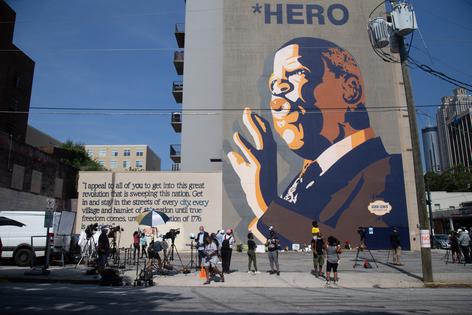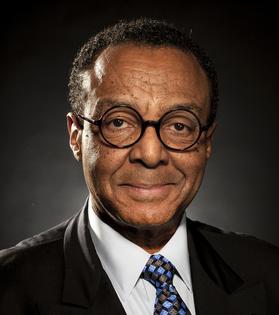Want to honor Rep. John Lewis? Repair the Voting Rights Act
Not all of Washington’s icons are dead. Some are still living and walking among us.
That thought came to mind whenever I ran into Rep. John Lewis on Capitol Hill, or in other newsmaker hot spots.
In a place not known to be overflowing with moral authority, the Georgia Democrat, who died last Friday at age 80, stood out. He was the last surviving member of the “Big Six” — the group that included Martin Luther King Jr. and organized the historic civil rights March on Washington in 1963.
Lewis’ iconic presence instantly reminded me of his younger self, the 23-year-old Freedom Rider and student leader who warmed up the crowd in 1963, before King delivered his historic “I Have a Dream” speech.
I would later learn that King and the movement’s other elders had talked Lewis into toning down his speech. They feared his fiery talk (his original version called for a march “through the South, through the heart of Dixie, the way Sherman did”) and critique of the initially weak civil rights bill that President John Kennedy’s administration had proposed (“too little, too late,” and “Which side is the federal government on?”).
Lewis complied, just enough, and the crowd on the Washington Mall loved it anyway. “By the force of our demands, our determination and our numbers,” he said, “we shall splinter the segregated South into a thousand pieces and put them together in the image of God and democracy. We must say: ‘Wake up, America. Wake up!’ For we cannot stop, and we will not and cannot be patient.”
Watching history unfold on our family TV as a high school student, I found a new purpose for my life. I became interested in journalism. As James Baldwin said he learned in church, I wanted to “bear witness to the truth.”
“Now, later on, you wonder what in the world the truth is,” Baldwin also said, “but you do know what a lie is.”
So did Lewis. With other movement members, he pushed Americans to live up to our best ideals of ourselves. He survived a brutal assault by Ku Klux Klansmen and more than 40 arrests at protests. In 1965, as he defiantly tried to cross the Edmund Pettus Bridge in Selma, Ala., with fellow marchers for voting rights, a state trooper’s billy club would fracture his skull.
Yes, he had a right to be angry and he was not alone. After the 1964 Civil Rights Act and the 1965 Voting Rights Act were passed, a newer and angrier “Black Power” movement broke out in 1966, sparked by Stokely Carmichael and other Student Nonviolent Coordinating Committee leaders who succeeded Lewis.
...continued
(c) 2020 CLARENCE PAGE DISTRIBUTED BY TRIBUNE MEDIA SERVICES, INC.










